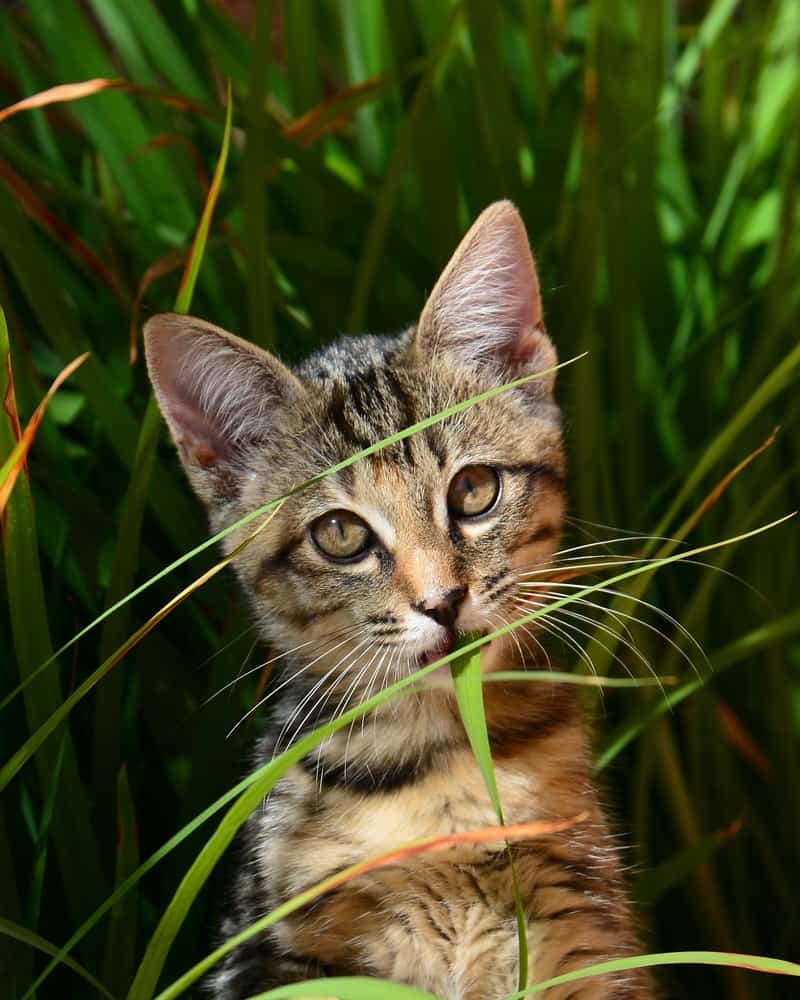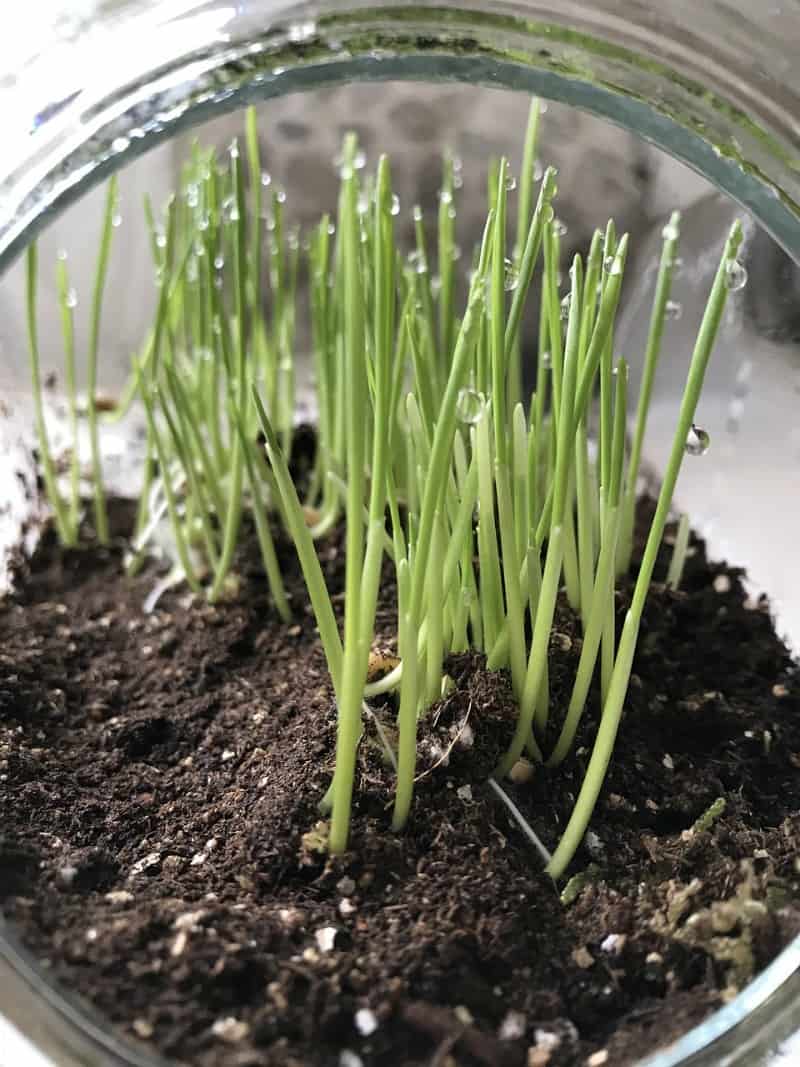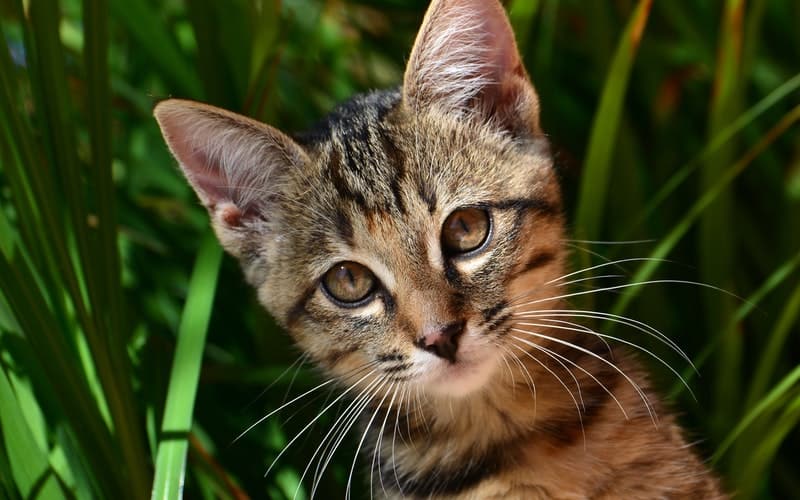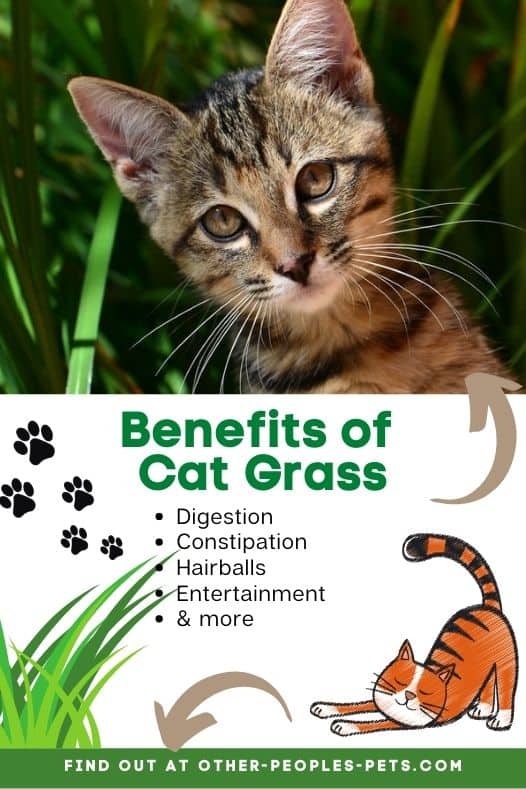Last Updated on March 18, 2022 by ellen
Posts may be sponsored. This post contains affiliate links, which means I will make a commission at no extra cost to you should you click through and make a purchase. As an Amazon Associate I earn from qualifying purchases.
Learn how about how to grow cat grass right here.

Table of Contents
Cat Grass Benefits
Eating cat grass is healthy for your kitty because fresh greens provide nutrients that are hard to get in dry or canned foods. Plus, it helps keep them happy and regular!
Cat grass can help keep kitty’s digestive system healthy
The benefits of cat grass for your cat are huge: the antibacterial properties of cat grass can help prevent your cat from developing digestive issues, and the fiber is great for their digestion. Cat grass can stimulate intestinal movement which causes soft stools, making sure that all toxins are expelled from your pet’s body.
Cat owners who feed their pets only dry food are missing out on the many health benefits that come from providing fresh vegetables as part of their regular diet – cat grass is a simple solution!

Do cats eat grass to get rid of hairballs?
Cat Grass can help with hairball control, weight management, dental health, and digestion. Cat grass also helps to expel hairballs and loose stools. It soothes their stomachs and has a mild laxative effect.
This product presentation was made with AAWP plugin.
Plus, fresh cat grass will encourage your cat to drink more water and take in additional nutrients. Cats love the taste of the grass and it’s a healthy snack for them
How long does cat grass last?
Cat grass is a low-maintenance, environmentally-friendly way to provide your cats with fresh greens. It’s best to have two trays growing so that your cat can enjoy snacking on one while the other grows. Then, switch them out when the other gets too low.
Since there are a lot of benefits to cat grass, it’s fine to let them eat it as they want to. This is a great way to get started.

Cat grass vs wheatgrass?
The best part about cat grass is that it’s quite simple to grow and you can even find it in some pet stores. Wheatgrass, barley, ryegrasses, and oat grasses are great for making a nutritious plant for your kitty.
Wheatgrass is very popular to make a cat’s snack. It lacks large amounts of oxalates, which are found in most herbs and plants; they can be harmful to pets, especially cats who have an easily upset stomach. Wheatgrass smells good and most felines seem to enjoy nibbling on it because it’s tender.
So, is cat grass just normal grass? No, it’s not the same as the grass outside on the lawn. It is a combination of different types of grasses. However, it’s grown inside safely and will not have any car exhaust or pesticides on it from lawn care or runoff from nearby roads.
This product presentation was made with AAWP plugin.
Why do they eat it?
One of the cat grass benefits that is most common is its ability to keep your pet regular. Your pet knows this and snacks on it instinctively as a source of added fiber.
If your cat lived in the wild, it would naturally eat safe plants to do the same thing. Since they aren’t, the best alternative is to let them snack on cat grass.
It is fine if they want to eat the roots. But, it’s better for the plant in general if you take it away from your pet before they completely pull the roots up. You can then let it grow more so that it’s longer and ready for snacking again.
Cat grass is truly a great gift to give your cat, especially if they are suffering from hairballs or other digestive and respiratory issues. It’s also very helpful to use when medicating your pet; wheatgrass can help them by reducing their nausea since it’s very soothing on the stomach.

More kitty nutrition articles
- Hemp for pets
- Homemade cat treats recipe
- Is pumpkin good for cats?
- Cultured pet food
- Feeding stray cats

Ellen runs a small pet sitting business in southern Vermont. She has experience with a variety of small animals, dogs and cats. She has also cared for ducks, chickens and rabbits. Combined, she has over 20 years of experience in pet care and pet sitting.
